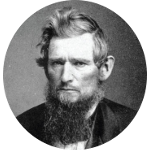Linda Nozick is Professor and Director of Civil and Environmental Engineering at Cornell University. She is co-founder and a past director of the College Program in Systems Engineering and has been the recipient of several awards, including a CAREER award from the National Science Foundation and a Presidential Early Career Award for Scientists and Engineers from President Clinton for “the development of innovative solutions to problems associated with the transportation of hazardous waste.” Dr. Nozick has authored over 60 peer-reviewed publications, many focused on transportation, the movement of hazardous materials, and the modeling of critical infrastructure systems. She has been an associate editor for Naval Research Logistics and a member of the editorial board of Transportation Research Part A. Dr. Nozick has served on two National Academy Committees to advise the U.S. Department of Energy on renewal of their infrastructure. During the 1998-1999 academic year, she was a Visiting Associate Professor in the Operations Research Department at the Naval Postgraduate School in Monterey, California. Dr. Nozick holds a B.S. in Systems Analysis and Engineering from the George Washington University and an MSE and Ph.D. in Systems Engineering from the University of Pennsylvania.

Military to Business
in Project ManagementCornell Certificate Program
Overview and Courses
Most projects — including those at successful companies — tend to go overbudget and take longer than projected, even with formal training, specialized tools, and automated software. The courses in this certificate program teach proven strategies and offer practical, hands-on tools to drive successful project outcomes. You will discover how to scope projects effectively, set key milestones, improve time budgeting and resource allocation, and get the project done on time and within budget. Processes covered within this program include agile methodologies and earned value management.
The concepts, tools, and language of project management can be applied to any size or type of project. Familiarity with the language of project management is helpful but not required to succeed in this program. Military veterans and active service members possess incredible experience in strategic planning, resource management, and adaptive thinking, all of which are highly transferable to project management in a business environment.
Beyond preparing you for civilian leadership, this program will help you channel your operational expertise into driving successful outcomes across industries. It also fosters meaningful collaboration by bringing together veterans and professionals from a variety of fields, enabling you to broaden your network, exchange insights, and build lasting connections with others who share your professional goals.
This program includes a year of free access to Symposium! These events feature several days of live, highly participatory virtual Zoom sessions with Cornell faculty and experts to explore the most pressing topics in project management. Symposium events are held several times throughout the year. Once enrolled in your program, you will receive information about upcoming events.
Throughout the year, you may participate in as many sessions as you wish. Attending Symposium sessions is not required to successfully complete the certificate program.
The core courses in this certificate program are required to be completed in the order that they appear.
Course list
On the surface, project management seems straightforward. However, at best, only 80% of projects end up being economically successful. The remaining 20% of projects usually cost more than estimated, run late, or fail to satisfy goals or meet objectives.
In this course, Linda Nozick, Professor and Director of Civil and Environmental Engineering at Cornell, shares clear, understandable, and practical methods for achieving better results. You will practice breaking down a project into pieces that can be scheduled, tracked, and controlled.
While this is not a prep course for a project management certification, it will be quite valuable for anyone who is interested in pursuing one. This program will equip you with the concepts, tools, and language of project management that can be applied to any size and type of project.
The course is not specific to any formal project management software (e.g. Microsoft Project), but will require that learners have Microsoft Excel with its free Solver add-on installed.
- Jan 7, 2026
- Jan 21, 2026
- Feb 4, 2026
- Feb 18, 2026
- Mar 4, 2026
- Mar 18, 2026
- Apr 1, 2026
Research shows that a high percentage of projects take significantly longer than expected and cost more than anticipated. Moreover, if you ask people for an estimate of how long a task will take them to complete, their estimate will usually be overly optimistic.
Sometimes, if you bring in extra people to help with a task, that actually slows down progress instead of accelerating it. Why is this so? And what can you do about it? In this course, from Linda K. Nozick, Director and Professor of Civil and Environmental Engineering at Cornell, you will examine these questions. Students will identify strategies to integrate resource availability constraints into project planning, scheduling, and control.
This course is designed for project managers who seek better practical results for aligning available resources with tasks and bringing activities to completion on time. Students will examine compression strategies for bringing a project that's running late back on track and will explore how to handle common types of project creep, such as handling customer requests that require extra time, and working with team members who decide independently to invest extra effort in a task.
This course combines a focus on formal project management mechanisms with an emphasis on the human element: what can project managers do to resolve issues brought about in the normal course of working with customers, team members, and stakeholders?
You are required to have completed the following course or have equivalent experience before taking this course:
- Organizing the Project and Its Components
- Jan 7, 2026
- Feb 18, 2026
- Mar 4, 2026
- Mar 18, 2026
- Apr 1, 2026
- Apr 15, 2026
- Apr 29, 2026
Risk management is a key function in project management. Project managers should be able to apply a variety of risk-management tools in their work, including performing risk identification, quantification, response, monitoring, and control.
In this course from Professor and Director of Civil and Environmental Engineering Linda K. Nozick, you will examine the nature and types of project risk and learn to apply specific mitigation strategies.
You'll have an opportunity to analyze a past project you've worked on and assess what the risks might have been and why. Then you'll analyze the outcomes: Did the known risks come to fruition? What were the leading indicators? What could they have done for contingency planning at the beginning? By asking these questions, you'll then be able to perform several calculations to compute the probability that a project will finish on time.
You are required to have completed the following courses or have equivalent experience before taking this course:
- Organizing the Project and Its Components
- Planning and Managing Resources
- Jan 7, 2026
- Jan 21, 2026
- Feb 4, 2026
- Feb 18, 2026
- Mar 4, 2026
- Mar 18, 2026
- Apr 1, 2026
In traditional project management, we tend to make assumptions: the customer knows precisely what they want, or the team's workflow and tasks will go according to plan and in sequence.
Practically speaking, this is rarely the case. Sometimes the customer doesn't know what they need until they see an early iteration of your team's work and can provide feedback. Because of this, work is usually done incrementally. We must build flexibility, even agility, into the model in order to succeed.
This course is designed for project managers who want to get better practical results with adaptive approaches to projects. Students in this course will be most successful if they have a foundational understanding of traditional project management tools and processes including project networks, budgets and schedules.
You are required to have completed the following courses or have equivalent experience before taking this course:
- Organizing the Project and Its Components
- Planning and Managing Resources
- Assessing, Managing, and Mitigating Project Risk
- Using Earned Value Management for Project Managers
- Jan 7, 2026
- Jan 21, 2026
- Feb 4, 2026
- Feb 18, 2026
- Mar 4, 2026
- Mar 18, 2026
- Apr 1, 2026
This course focuses on the psychological element of negotiation. You will learn how understanding your own and your partner's psychological state can have a significant effect on how your negotiation unfolds. You will be introduced to techniques that will allow you to develop your emotional intelligence for better communication with the other party. You will also learn about negotiations that failed as a result of certain feelings, and what to do in order to save them.
This course requires 2 live negotiation sessions per course with a partner from your class. You will be asked to submit information on your time zone within 24 hours after the course starts so that you are matched with a negotiating partner in time to complete the required negotiating assignments. Please be prepared to coordinate your schedule with an assigned partner. Specific instructions will be provided in the course.- Feb 25, 2026
- May 6, 2026
- Jul 15, 2026
- Sep 23, 2026
- Dec 2, 2026
Even experienced project leaders often find that regular meetings and status updates don't lead to meaningful communication. When the team doesn't fully understand project goals or how the work is going to get done, that lack of clarity will have a direct impact on whether the project is on time, within budget, and will lead to quality output. At the same time, team members may mislead you about their progress. Stakeholders may not always explain their expectations. Customers may be unclear about what they want and need. What's going wrong? And how can a project leader do better?
In this course, authored by Cornell Instructor Robert Newman, you will examine typical project-related communication problems and explore practical strategies for overcoming them. You'll learn to host kick-offs and lead meetings that actually guide the team toward successful outcomes. You will practice communicating with a fresh, even sometimes unfamiliar, perspective in order to bring about productive and high-functioning working relationships.
You are required to have completed the following course or have equivalent experience before taking this course:
- Leverage Emotional Intelligence for Project Results
- Jan 21, 2026
- Feb 4, 2026
- Feb 18, 2026
- Mar 4, 2026
- Mar 18, 2026
- Apr 1, 2026
- Apr 15, 2026
Seasoned project leaders sometimes apply the same leadership approach to every situation. In this course, authored by Cornell Instructor Robert Newman, you'll explore a number of leadership styles to assess their relative strengths and weaknesses. You'll learn how to manage safety concerns, when to be directly coercive, and see how creative collaboration and a shot of inspiration can turn things around for a team.
After taking this course, you'll be ready to employ a particular style or model of leadership just as a carpenter would a tool. Does the occasion call for a hammer or a saw? Every style of leadership has its merits and its place. Find out what style works best for the situation.
You are required to have completed the following course or have equivalent experience before taking this course:
- Leverage Emotional Intelligence for Project Results
- Jan 7, 2026
- Jan 21, 2026
- Feb 4, 2026
- Feb 18, 2026
- Mar 4, 2026
- Mar 18, 2026
- Apr 1, 2026
Most managers only think about performance once a year when they have to conduct annual appraisals for their direct reports, or when things are going poorly. This course equips managers to move beyond this approach and develop an ongoing and proactive
- Jan 14, 2026
- Jan 28, 2026
- Feb 11, 2026
- Feb 25, 2026
- Mar 11, 2026
- Mar 25, 2026
- Apr 8, 2026
Important business decisions require justification, and while we often have data that can help us make those decisions, the skill with which we analyze the data can make the difference between a good and bad outcome. This course, developed by Professor Chris Anderson, is designed to move learners beyond making decisions focused solely on averages. In this course, you will develop a working familiarity with the grounding principles of data analysis. You will learn to derive the greatest benefit possible from the data available to you while ensuring that the conclusions you draw remain valid. You will apply a decision-making framework within which you'll interact with the data to achieve the best outcome.
This course includes valuable tools and help sheets for data handlers along with the insight and perspective you need as a data consumer. While this course is not a replacement for a full-length statistics course, you will have a basic grounding in many statistics concepts by the time the course is over. You should be able to complete this course without any prior knowledge of statistics.
Project Management Institute (PMI®) Continuing Certification: Participants who successfully complete this course will receive 6 Professional Development Units (PDUs) from PMI®. Please contact PMI ® for details about professional project management certification or recertification. PMI is a registered mark of the Project Management Institute, Inc.
- Jan 7, 2026
- Jan 28, 2026
- Feb 18, 2026
- Mar 11, 2026
- Apr 1, 2026
- Apr 22, 2026
- May 13, 2026
Summary statistics are one way to forecast uncertain outcomes, and the statistical results can be used to make decisions or guide strategy. Since summary statistics are based on a data sample, they typically inform intuitive decision-making. That is, the model requires interpretation which relies on the business intuition of the person using it.
You'll learn how to examine sample data scientifically to limit any generalizations to only the patterns that have the strongest statistical support. As always, intuition and business knowledge play an important role in the process, but this course will prepare you to apply a level of scientific rigor that will lead to better results.
You are required to have completed the following course or have equivalent experience before taking this course:
- Understanding and Visualizing Data
- Jan 28, 2026
- Feb 18, 2026
- Mar 11, 2026
- Apr 1, 2026
- Apr 22, 2026
- May 13, 2026
- Jun 3, 2026
- Jan 28, 2026
- Feb 11, 2026
- Feb 25, 2026
- Mar 11, 2026
- Mar 25, 2026
- Apr 8, 2026
- Apr 22, 2026
When trying to persuade someone, the tendency is to begin in advocacy mode—for example: “Here's something I want you to agree to.” Most people do not react positively to the feeling of being sold something. The usual reaction is to literally or figuratively start backing up. To make a convincing case, it is more effective to engage with the decision maker as a partner in problem-solving. This makes your counterpart feel less like someone is trying to get them to buy something and more like you are working together to bring about an outcome that is desirable to both parties. Begin by asking yourself: “What is the problem you and the decision maker are solving together?”
By the end of this course, you will have learned how to deeply analyze a problem, possible solutions, and the associated risks as well as the most persuasive and efficient ways of presenting your proposal.
You are required to have completed the following course or have equivalent experience before taking this course:
- Solve Problems Using Evidence and Critical Thinking
- Dec 31, 2025
- Jan 14, 2026
- Jan 28, 2026
- Feb 11, 2026
- Feb 25, 2026
- Mar 11, 2026
- Mar 25, 2026
How It Works
- View slide #1
- View slide #2
- View slide #3
- View slide #4
- View slide #5
- View slide #6
- View slide #7
- View slide #8
Faculty Authors
Allan Filipowicz is clinical professor of management and organizations at the Samuel Curtis Johnson Graduate School of Management at Cornell University. Professor Filipowicz’s research focuses on how emotions drive or impede leadership effectiveness, at both the intrapersonal and interpersonal levels. Within this domain, he studies the relationship between emotions and risky decision making; the influence of humor on both leadership and negotiation effectiveness; the impact of emotional transitions in negotiations; and the relationship between genes, chronotype (morningness–eveningness) and performance. His work has been published in the Journal of Personality and Social Psychology, Journal of Behavioral Decision Making, Journal of Operations Management, International Journal of Forecasting, Creativity Research Journal, Journal of Circadian Rhythms, and Scientific Reports.
Professor Filipowicz teaches Managing and Leading Organizations (recently winning a Best Core Faculty Award), Negotiations, Executive Leadership and Development, Leading Teams, and Critical and Strategic Thinking. He has taught executives across the globe, from Singapore to Europe to the US, with recent clients including Medtronic, Bayer, Google, Pernod Ricard, and Harley-Davidson. Professor Filipowicz received his PhD from Harvard University. He holds an MBA from The Wharton School, an MA in International Affairs from the University of Pennsylvania, and degrees in electrical engineering (MEng, BS) and economics (BA) from Cornell University. His professional experience includes banking (Bankers Trust, New York) and consulting, including running his own boutique consulting firm and four years with The Boston Consulting Group in Paris.
Robert Newman’s teaching focuses on developing critical skills for leadership, including emotional intelligence, individual and team behavior, conflict management and other soft skills for project managers; business savvy, effective communication, economic analysis, negotiation prowess, managing contracts and IP, ethics, and engineering management decision making.
Prior to joining Cornell, Professor Newman had over 20 years experience as a successful manager with an outstanding track record of delivering organizational development and growth at global providers of technology, capital equipment, consumables, and support services at world-leading organizations. He successfully managed the integration of teams following four acquisitions and performed a very successful business turnaround.
Professor Newman’s previous experience includes CEO of MiTeGen, a manufacturer of consumables and instrumentation for biotech; COO of AeroFarms LLC, a startup company providing capital equipment for controlled environment agriculture; Business Manager of Service and Customer Support at Mettler Toledo Hi-Speed, North America’s leading manufacturer of check weighers and integrated product inspection solutions; and Vice President of Customer Support and Implementation at Moldflow Corp., the global leader in CAE for polymer processing, hot runner controllers, and related injection molding and production monitoring equipment.
Professor Newman holds undergraduate degrees from Embry-Riddle Aeronautical University and an MBA in International Management, from Baker College.
Diane Burton is a professor in the ILR School at Cornell University. Her primary appointment is in human resource studies, with courtesy appointments in organizational behavior and sociology. Prior to joining the Cornell faculty in 2009, Professor Burton was a faculty member at the MIT Sloan School of Management. She began her academic career at the Harvard Business School teaching leadership and organizational behavior. Professor Burton earned her Ph.D. in sociology at Stanford University and served as a lecturer and researcher in organizational behavior and human resources management at the Stanford Graduate School of Business.
- Executive Compensation Fundamentals
- Military to Business in Project Management
- Military to Business in Marketing
- Board of Directors Forum at Cornell Tech
- Organizational Design
- Recruiting and Talent Acquisition
- Diversity, Equity, and Inclusion for HR
- Compensation and Benefits
- Human Resources Essentials
- Leadership Essentials
- Human Resources Management
Allison Elias is a Senior Fellow and Lecturer in Management at the Wharton School of the University of Pennsylvania. She is also a Visiting Assistant Professor at the Cornell School of Hotel Administration for the 2019-2020 academic year.
Her research investigates historical and contemporary issues of gender and diversity in organizations, with a particular focus on the ways that social movements become translated into corporate policies and practices. Her forthcoming book (Columbia University Press), at the intersection of history, gender, and management studies, charts the trajectory of modern feminism at work by tracing the changing nature of secretarial work from the 1960s to the present.
Before coming to Wharton, Dr. Elias taught at the Owen Graduate School of Management, Vanderbilt University, where she was also appointed a Fellow in the Provost’s Office for Inclusive Excellence. Previously, she was on faculty at Cornell University in the ILR School and the SC Johnson College of Business. Dr. Elias received her doctorate in History from the University of Virginia, where she worked during graduate school as a research associate at the Darden School of Business.
Chris Anderson is a professor at the Cornell Nolan School of Hotel Administration. Prior to his appointment in 2006, he was on the faculty at the Ivey School of Business in London, Ontario, Canada. Professor Anderson’s main research focus is on revenue management and service pricing. He actively works in the application and development of revenue management across numerous industry types, including hotels, airlines, and rental car and tour companies, as well as numerous consumer packaged goods and financial services firms. Professor Anderson’s research has been funded by numerous governmental agencies and industrial partners. He serves on the editorial board of the Journal of Revenue and Pricing Management and is the regional editor for the International Journal of Revenue Management. At the Nolan School of Hotel Administration, Professor Anderson teaches courses in revenue management and service operations management.
- Military to Business in Project Management
- Military to Business in Marketing
- AI in Hospitality
- Restaurant Distribution Strategy
- Hospitality Professional Development Program
- General Managers Program
- Data Analytics in R
- Management 360
- Data Analytics 360
- Revenue Management 360
- Data Analytics
- Hospitality Management
- Advanced Hospitality Revenue Management: Pricing and Demand Strategies
Risa Mish is professor of practice of management at the Johnson Graduate School of Management. She designed and teaches the MBA Core course in Critical and Strategic Thinking, in addition to teaching courses in leadership and serving as faculty co-director of the Johnson Leadership Fellows program.
She has been the recipient of the MBA Core Faculty Teaching Award, selected by the residential program MBA class to honor the teacher who “best fosters learning through lecture, discussion and course work in the required core curriculum”; the Apple Award for Teaching Excellence, selected by the MBA graduating classes to honor a faculty member who “exemplifies outstanding leadership and enduring educational influence”; the “Best Teacher Award”, selected by the graduating class of the Cornell-Tsinghua dual degree MBA/FMBA program offered by Johnson at Cornell and the PBC School of Finance at Tsinghua University; the Stephen Russell Distinguished Teaching Award, selected by the five-year MBA reunion class to honor a faculty member whose “teaching and example have continued to influence graduates five years into their post-MBA careers”; and the Globe Award for Teaching Excellence, selected by the Executive MBA graduating class to honor a faculty member who “demonstrates a command of subject matter and also possesses the creativity, dedication, and enthusiasm essential to meet the unique challenges of an EMBA education.”
Mish serves as a keynote speaker and workshop leader at global, national, and regional conferences for corporations and trade associations in the consumer products, financial services, health care, high tech, media, and manufacturing industries, on a variety of topics, including critical thinking and problem solving, persuasion and influence, and motivating optimal employee performance. Before returning to Cornell, Mish was a partner in the New York City law firm of Collazo Carling & Mish LLP (now Collazo Florentino & Keil LLP), where she represented management clients on a wide range of labor and employment law matters, including defense of employment discrimination claims in federal and state courts and administrative agencies, and in labor arbitrations and negotiations under collective bargaining agreements. Prior to CC&M, Mish was a labor and employment law associate with Simpson Thacher & Bartlett in New York City, where she represented Fortune 500 clients in the financial services, consumer products, and manufacturing industries. She is admitted to practice before the U.S. Supreme Court and state and federal courts in New York and Massachusetts.
Mish is a member of the board of directors of SmithBucklin Corporation, the world’s largest trade association management company, headquartered in Chicago and TheraCare Corporation, headquartered in New York City. She formerly served as a Trustee of the Tompkins County Public Library, Vice Chair of the board of directors of the Community Foundation of Tompkins County, and member of the board of directors of the United Way of Tompkins County.

Linda Nozick is Professor and Director of Civil and Environmental Engineering at Cornell University. She is co-founder and a past director of the College Program in Systems Engineering and has been the recipient of several awards, including a CAREER award from the National Science Foundation and a Presidential Early Career Award for Scientists and Engineers from President Clinton for “the development of innovative solutions to problems associated with the transportation of hazardous waste.” Dr. Nozick has authored over 60 peer-reviewed publications, many focused on transportation, the movement of hazardous materials, and the modeling of critical infrastructure systems. She has been an associate editor for Naval Research Logistics and a member of the editorial board of Transportation Research Part A. Dr. Nozick has served on two National Academy Committees to advise the U.S. Department of Energy on renewal of their infrastructure. During the 1998-1999 academic year, she was a Visiting Associate Professor in the Operations Research Department at the Naval Postgraduate School in Monterey, California. Dr. Nozick holds a B.S. in Systems Analysis and Engineering from the George Washington University and an MSE and Ph.D. in Systems Engineering from the University of Pennsylvania.

Allan Filipowicz is clinical professor of management and organizations at the Samuel Curtis Johnson Graduate School of Management at Cornell University. Professor Filipowicz’s research focuses on how emotions drive or impede leadership effectiveness, at both the intrapersonal and interpersonal levels. Within this domain, he studies the relationship between emotions and risky decision making; the influence of humor on both leadership and negotiation effectiveness; the impact of emotional transitions in negotiations; and the relationship between genes, chronotype (morningness–eveningness) and performance. His work has been published in the Journal of Personality and Social Psychology, Journal of Behavioral Decision Making, Journal of Operations Management, International Journal of Forecasting, Creativity Research Journal, Journal of Circadian Rhythms, and Scientific Reports.
Professor Filipowicz teaches Managing and Leading Organizations (recently winning a Best Core Faculty Award), Negotiations, Executive Leadership and Development, Leading Teams, and Critical and Strategic Thinking. He has taught executives across the globe, from Singapore to Europe to the US, with recent clients including Medtronic, Bayer, Google, Pernod Ricard, and Harley-Davidson. Professor Filipowicz received his PhD from Harvard University. He holds an MBA from The Wharton School, an MA in International Affairs from the University of Pennsylvania, and degrees in electrical engineering (MEng, BS) and economics (BA) from Cornell University. His professional experience includes banking (Bankers Trust, New York) and consulting, including running his own boutique consulting firm and four years with The Boston Consulting Group in Paris.

Robert Newman’s teaching focuses on developing critical skills for leadership, including emotional intelligence, individual and team behavior, conflict management and other soft skills for project managers; business savvy, effective communication, economic analysis, negotiation prowess, managing contracts and IP, ethics, and engineering management decision making.
Prior to joining Cornell, Professor Newman had over 20 years experience as a successful manager with an outstanding track record of delivering organizational development and growth at global providers of technology, capital equipment, consumables, and support services at world-leading organizations. He successfully managed the integration of teams following four acquisitions and performed a very successful business turnaround.
Professor Newman’s previous experience includes CEO of MiTeGen, a manufacturer of consumables and instrumentation for biotech; COO of AeroFarms LLC, a startup company providing capital equipment for controlled environment agriculture; Business Manager of Service and Customer Support at Mettler Toledo Hi-Speed, North America’s leading manufacturer of check weighers and integrated product inspection solutions; and Vice President of Customer Support and Implementation at Moldflow Corp., the global leader in CAE for polymer processing, hot runner controllers, and related injection molding and production monitoring equipment.
Professor Newman holds undergraduate degrees from Embry-Riddle Aeronautical University and an MBA in International Management, from Baker College.

Diane Burton is a professor in the ILR School at Cornell University. Her primary appointment is in human resource studies, with courtesy appointments in organizational behavior and sociology. Prior to joining the Cornell faculty in 2009, Professor Burton was a faculty member at the MIT Sloan School of Management. She began her academic career at the Harvard Business School teaching leadership and organizational behavior. Professor Burton earned her Ph.D. in sociology at Stanford University and served as a lecturer and researcher in organizational behavior and human resources management at the Stanford Graduate School of Business.
- Executive Compensation Fundamentals
- Military to Business in Project Management
- Military to Business in Marketing
- Board of Directors Forum at Cornell Tech
- Organizational Design
- Recruiting and Talent Acquisition
- Diversity, Equity, and Inclusion for HR
- Compensation and Benefits
- Human Resources Essentials
- Leadership Essentials
- Human Resources Management

Allison Elias is a Senior Fellow and Lecturer in Management at the Wharton School of the University of Pennsylvania. She is also a Visiting Assistant Professor at the Cornell School of Hotel Administration for the 2019-2020 academic year.
Her research investigates historical and contemporary issues of gender and diversity in organizations, with a particular focus on the ways that social movements become translated into corporate policies and practices. Her forthcoming book (Columbia University Press), at the intersection of history, gender, and management studies, charts the trajectory of modern feminism at work by tracing the changing nature of secretarial work from the 1960s to the present.
Before coming to Wharton, Dr. Elias taught at the Owen Graduate School of Management, Vanderbilt University, where she was also appointed a Fellow in the Provost’s Office for Inclusive Excellence. Previously, she was on faculty at Cornell University in the ILR School and the SC Johnson College of Business. Dr. Elias received her doctorate in History from the University of Virginia, where she worked during graduate school as a research associate at the Darden School of Business.

Chris Anderson is a professor at the Cornell Nolan School of Hotel Administration. Prior to his appointment in 2006, he was on the faculty at the Ivey School of Business in London, Ontario, Canada. Professor Anderson’s main research focus is on revenue management and service pricing. He actively works in the application and development of revenue management across numerous industry types, including hotels, airlines, and rental car and tour companies, as well as numerous consumer packaged goods and financial services firms. Professor Anderson’s research has been funded by numerous governmental agencies and industrial partners. He serves on the editorial board of the Journal of Revenue and Pricing Management and is the regional editor for the International Journal of Revenue Management. At the Nolan School of Hotel Administration, Professor Anderson teaches courses in revenue management and service operations management.
- Military to Business in Project Management
- Military to Business in Marketing
- AI in Hospitality
- Restaurant Distribution Strategy
- Hospitality Professional Development Program
- General Managers Program
- Data Analytics in R
- Management 360
- Data Analytics 360
- Revenue Management 360
- Data Analytics
- Hospitality Management
- Advanced Hospitality Revenue Management: Pricing and Demand Strategies

Risa Mish is professor of practice of management at the Johnson Graduate School of Management. She designed and teaches the MBA Core course in Critical and Strategic Thinking, in addition to teaching courses in leadership and serving as faculty co-director of the Johnson Leadership Fellows program.
She has been the recipient of the MBA Core Faculty Teaching Award, selected by the residential program MBA class to honor the teacher who “best fosters learning through lecture, discussion and course work in the required core curriculum”; the Apple Award for Teaching Excellence, selected by the MBA graduating classes to honor a faculty member who “exemplifies outstanding leadership and enduring educational influence”; the “Best Teacher Award”, selected by the graduating class of the Cornell-Tsinghua dual degree MBA/FMBA program offered by Johnson at Cornell and the PBC School of Finance at Tsinghua University; the Stephen Russell Distinguished Teaching Award, selected by the five-year MBA reunion class to honor a faculty member whose “teaching and example have continued to influence graduates five years into their post-MBA careers”; and the Globe Award for Teaching Excellence, selected by the Executive MBA graduating class to honor a faculty member who “demonstrates a command of subject matter and also possesses the creativity, dedication, and enthusiasm essential to meet the unique challenges of an EMBA education.”
Mish serves as a keynote speaker and workshop leader at global, national, and regional conferences for corporations and trade associations in the consumer products, financial services, health care, high tech, media, and manufacturing industries, on a variety of topics, including critical thinking and problem solving, persuasion and influence, and motivating optimal employee performance. Before returning to Cornell, Mish was a partner in the New York City law firm of Collazo Carling & Mish LLP (now Collazo Florentino & Keil LLP), where she represented management clients on a wide range of labor and employment law matters, including defense of employment discrimination claims in federal and state courts and administrative agencies, and in labor arbitrations and negotiations under collective bargaining agreements. Prior to CC&M, Mish was a labor and employment law associate with Simpson Thacher & Bartlett in New York City, where she represented Fortune 500 clients in the financial services, consumer products, and manufacturing industries. She is admitted to practice before the U.S. Supreme Court and state and federal courts in New York and Massachusetts.
Mish is a member of the board of directors of SmithBucklin Corporation, the world’s largest trade association management company, headquartered in Chicago and TheraCare Corporation, headquartered in New York City. She formerly served as a Trustee of the Tompkins County Public Library, Vice Chair of the board of directors of the Community Foundation of Tompkins County, and member of the board of directors of the United Way of Tompkins County.
- View slide #1
- View slide #2
- View slide #3
- View slide #4
- View slide #5
- View slide #6
- View slide #7
Key Course Takeaways
- Examine the project management life cycle and the continuum of project characteristics
- Use float information for decision making
- Use strategies for mitigating scope creep, hope creep, effort creep, and team-member scope creep
- Employ practical tools to assess the likelihood and probable consequences of risks
- Consider what style will work best for your team in general and what styles apply only to certain situations


JOIN A PROJECT MANAGEMENT SYMPOSIUM!

What You'll Earn
- Military to Business in Project Management Certificate from Cornell University College of Engineering
- 40 to 70 Professional Development Hours (4 to 7 CEUs)
- 40 to 60 Professional Development Units (PDUs) toward PMI recertification
Watch the Video
Who Should Enroll
- Service members transitioning, or veterans who have previously separated or retired, from any military branch

{Anytime, anywhere.}
Request Information Now by completing the form below.

Military to Business in Project Management
| Select Payment Method | Cost |
|---|---|
| $3,750 | |
